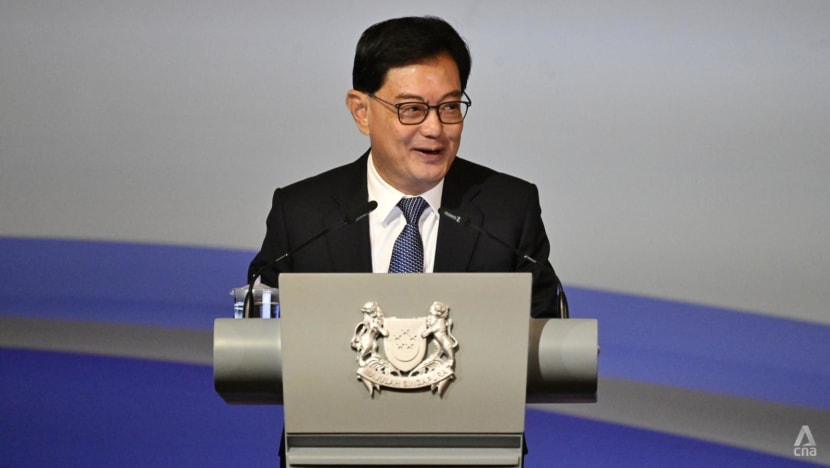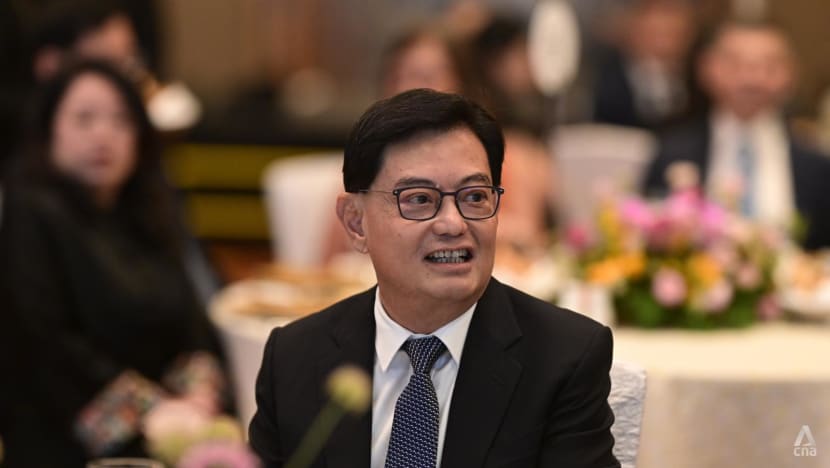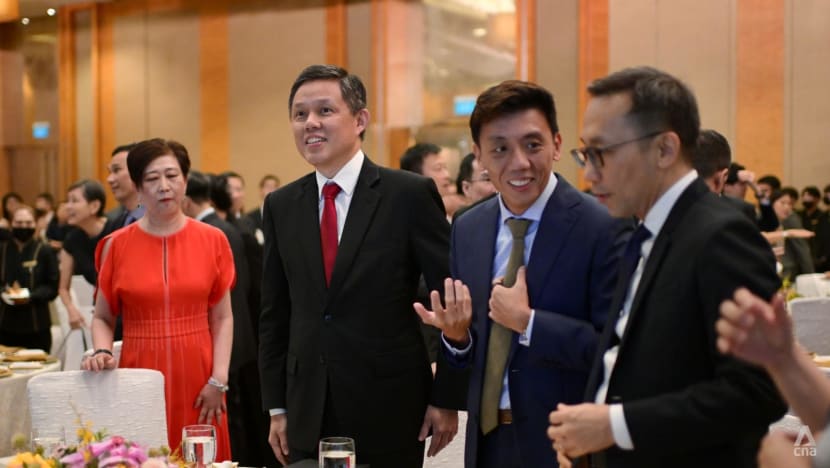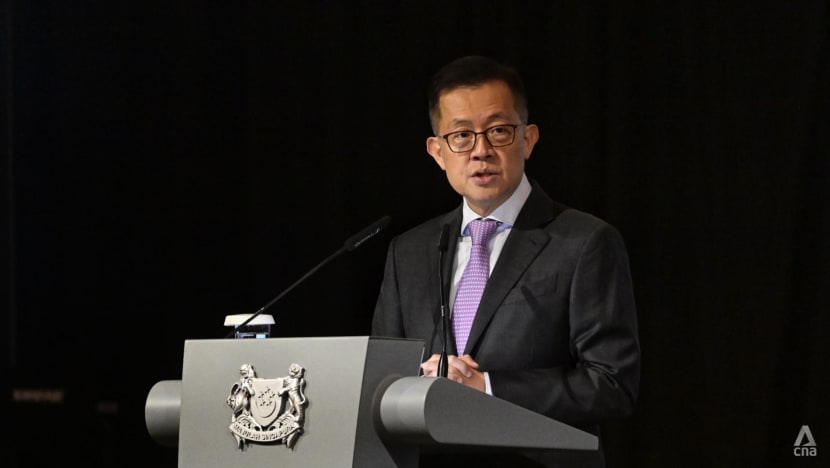No minister can focus on political engagements alone and leave policy design to public service: DPM Heng
SINGAPORE: Deputy Prime Minister Heng Swee Keat said on Tuesday (Apr 15) that no minister can focus on political engagements alone and leave the designing of effective policies to the public service.
Public service officers play a “critical” role in complementing the political leadership in taking the country forward, and it is important to maintain a “trust relationship”, he said at the annual Administrative Service dinner.
“While the relationship between political office holders and the public service has evolved, one critical quality has not changed – the high trust and confidence that we enjoy, and our sense of common purpose of securing a better future for Singapore, for Singaporeans,” said Mr Heng.
In his speech, Mr Heng shared anecdotes of his time in public service and distilled several lessons learned, with one of them being upholding a relationship of trust between the public service and political leadership.
Prior to entering politics in 2011, Mr Heng was the managing director of the Monetary Authority of Singapore.
He also served as founding Prime Minister Lee Kuan Yew's principal private secretary between 1997 and 2000, as well as permanent secretary of the Ministry of Trade and Industry (MTI) between 2001 and 2005.

Noting that he had “deep respect” for the political office holders he had worked with during his time as a public servant, Mr Heng said: “I stayed because I felt I was working with leaders whom I could look up to, whose commitment to Singaporeans’ well-being inspired me.”
After becoming a minister, he in turn received “strong support” from his permanent secretaries.
“In the coming years, political contestation in Singapore will become more intense. I find it alarming to hear some political parties claiming that, with a first-class public service, the public need not fear a change of government,” Mr Heng said to the 320 guests gathered at Marina Bay Sands, including Education Minister and Minister-In-Charge of the Public Service Chan Chun Sing.
“I am convinced that no minister can make effective policies for the long-term interests of Singapore by focusing on political engagements or politicking alone, and leaving it to the public service to design and implement policies.”
He added: “If the political leaders I’d served in my (administrative service) days had done that and had no policy instincts on what makes Singapore tick, I would have left the public service long ago, and so would many of my fellow permanent secretaries.”
OVERCOMING CONSTRAINTS
In his speech, Mr Heng also touched on the country’s ability to overcome its multiple constraints in size and lack of natural resources, calling the Singapore Story “one of turning constraints into opportunity, and small into beautiful”.
Both the world and Singapore have gone through significant changes over the past 60 years, ranging from wars, financial and economic crises, recessions to pandemics.
Now, the world is on the brink of a new trade and technology war, set off by the strategic rivalry between the United States and China, he said, noting that the world order of rules-based multilateral trade is being replaced by arbitrary and protectionist policies.
Singapore has not been spared from the latest raft of tariffs announced by the US, and is subject to the baseline 10 per cent rate tariff implemented on all imports into the US.

Mr Heng noted that there will be a “significant reconfiguration” of the global supply chain in the coming years.
“Singapore as a major trade hub and logistics centre can make the best use of (the) ongoing digital revolution, especially in artificial intelligence, to reposition ourselves,” he said.
He also stressed that the country must “deepen and widen” trade and investment relations with countries it has free trade agreements with to emerge stronger. Currently, Singapore has a network of 27 trade pacts, including bilateral and regional agreements.
“Having upgraded the relations with many of our partners to a Comprehensive Strategic Partnership, in this age of trade and tech-war, let us position Singapore as a global-Asia node of technology, innovation and enterprise, trusted, relevant and useful to the world,” he said.

The annual dinner ceremony also saw the appointments of 13 officers to the administrative service, and the promotion of 60 administrative officers.
In their speeches, Mr Heng and head of civil service Leo Yip thanked the five senior civil servants who have retired or are retiring for their contributions.
One of them is Mr Jeffrey Siow, who was the second permanent secretary at the Ministries of Manpower and Trade and Industry before he retired from public service on Apr 2 after 24 years. Mr Siow has been announced as part of the People’s Action Party’s slate of candidates for Chua Chu Kang GRC.

With the departures of senior civil servants, Mr Yip said leadership renewal has been taking place in the public service “on an ongoing basis” and called it a key feature in sustaining the country’s system of governance.
“Leadership renewal is how we effect our leadership succession plans, and we do so to keep our leadership bench dynamic, by injecting on an ongoing basis fresh ideas, drive and energy to our organisations,” said Mr Yip.
“It is this focus on renewal that keeps our system of governance fresh, so that we can contribute to maintaining Singapore’s exceptionalism.”
免责声明:投资有风险,本文并非投资建议,以上内容不应被视为任何金融产品的购买或出售要约、建议或邀请,作者或其他用户的任何相关讨论、评论或帖子也不应被视为此类内容。本文仅供一般参考,不考虑您的个人投资目标、财务状况或需求。TTM对信息的准确性和完整性不承担任何责任或保证,投资者应自行研究并在投资前寻求专业建议。
热议股票
- 1
- 2
- 3
- 4
- 5
- 6
- 7
- 8
- 9
- 10